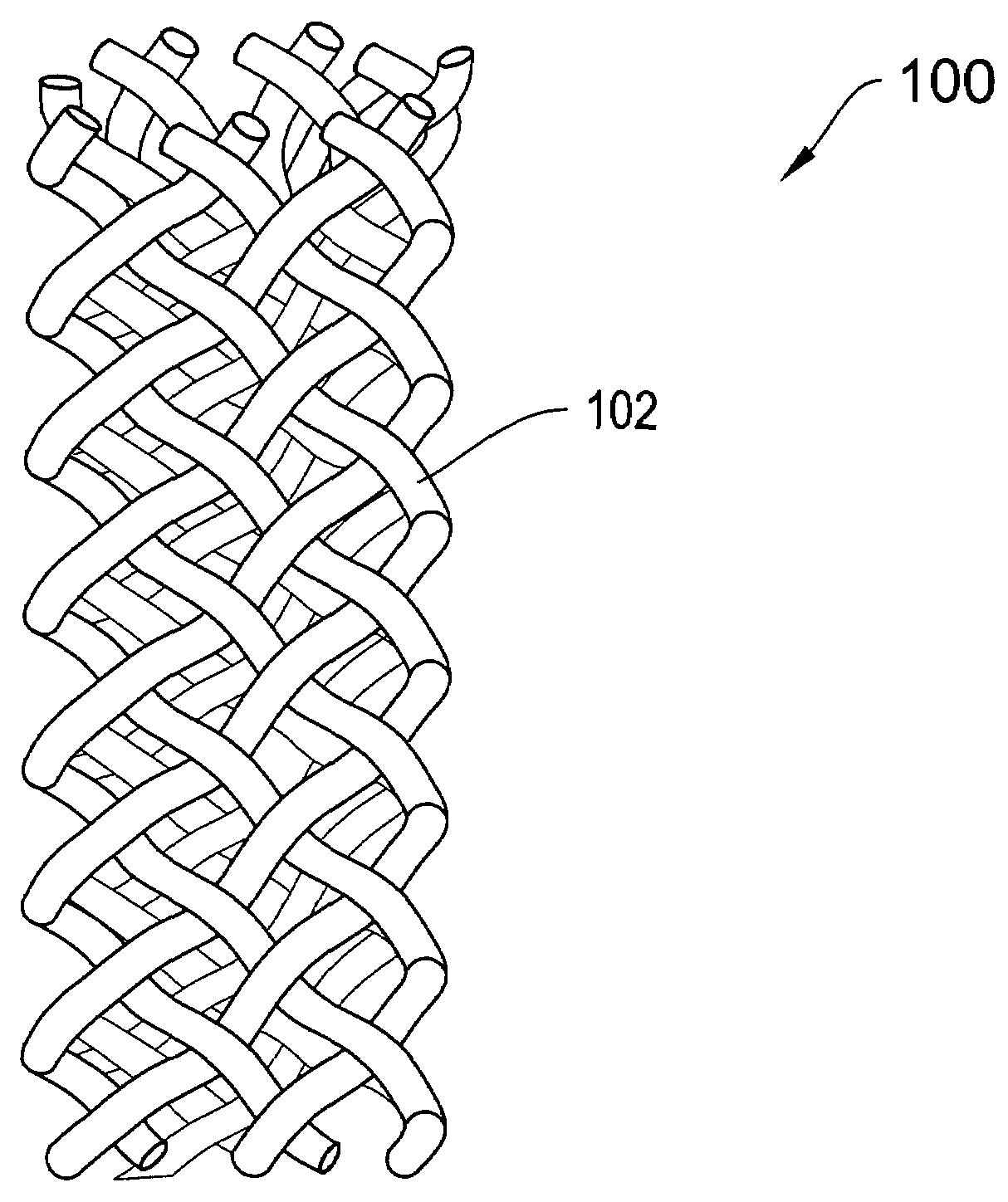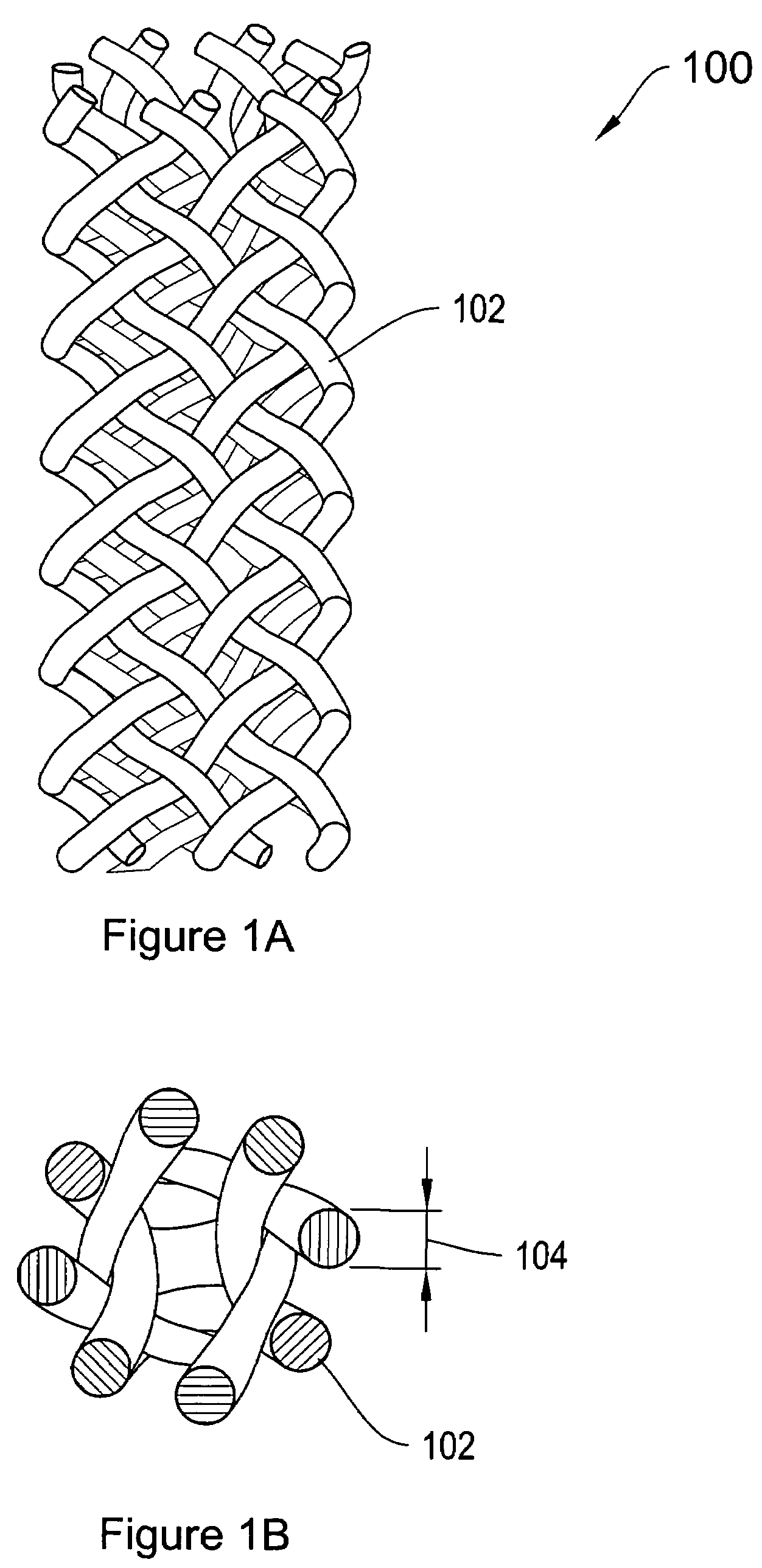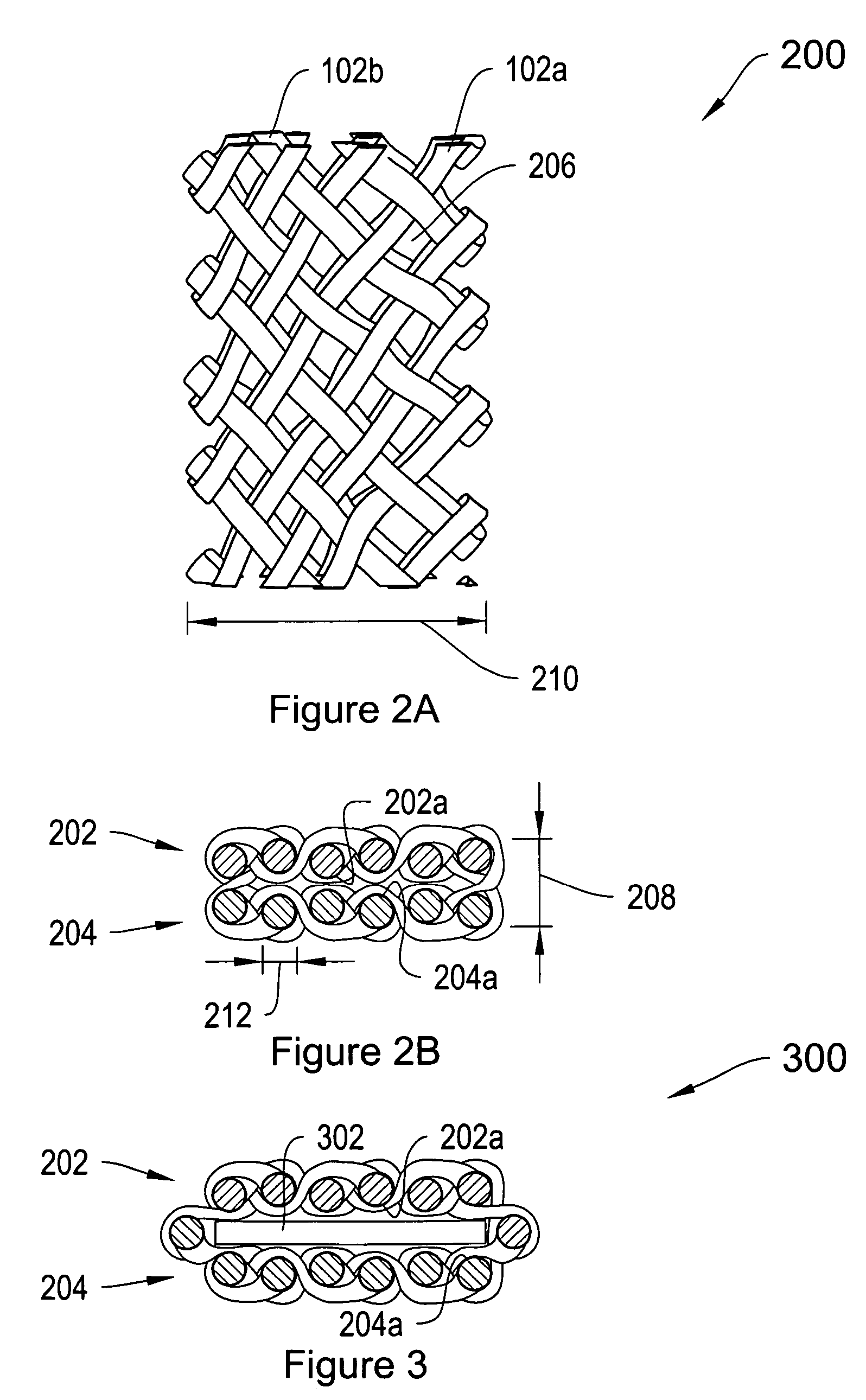Flattened tubular mesh sling and related methods
a tubular mesh and sling technology, applied in the field of surgically implantable supportive slings, can solve the problems of insufficient response time, laborious, and urine to leak out of the urethra during stressful activities, so as to reduce discomfort, promote tissue growth, and reduce the chance of infection
- Summary
- Abstract
- Description
- Claims
- Application Information
AI Technical Summary
Benefits of technology
Problems solved by technology
Method used
Image
Examples
Embodiment Construction
[0016]As described in summary above, in various illustrative embodiments, the invention is directed to a multilayer implantable sling formed from a flattened tubular mesh material. By forming the implantable sling from the flattened tubular mesh material, the process of cutting slings to desired widths can be avoided. Additionally, slings with smooth, rather than tanged or jagged, long edges can be easily formed, without the need for any additional detanging or smoothing process.
[0017]FIG. 1A is a top view of a tubular mesh material 100 of the type that may be employed in forming a supporting implantable sling of the invention. FIG. 1B shows an end view of the tubular material 100 of FIG. 1. Referring to both FIGS. 1A and 1B, the mesh material 100 includes a plurality of fibers 102 that are braided, knitted or otherwise woven together into a tubular configuration. The mesh material 100 may be configured into a porous tubular configuration. The mesh material 100 may be non-woven, suc...
PUM
 Login to View More
Login to View More Abstract
Description
Claims
Application Information
 Login to View More
Login to View More - R&D
- Intellectual Property
- Life Sciences
- Materials
- Tech Scout
- Unparalleled Data Quality
- Higher Quality Content
- 60% Fewer Hallucinations
Browse by: Latest US Patents, China's latest patents, Technical Efficacy Thesaurus, Application Domain, Technology Topic, Popular Technical Reports.
© 2025 PatSnap. All rights reserved.Legal|Privacy policy|Modern Slavery Act Transparency Statement|Sitemap|About US| Contact US: help@patsnap.com



